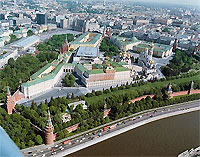Closed part of Russia’s response to Magnitsky List longer than open – source

(Interfax -MOSCOW. April 16, 2013) The closed part of the list of U.S. citizens prohibited to visit Russia is longer than the open part, a source at the Russian Foreign Ministry told Interfax on Tuesday.
“Concerning the Russian list, its closed part carries more names than the open one,” he said.
The source said he did not know how many Russian citizens were included in the closed part of the U.S. Magnitsky List.
“I have no idea; the Americans have not notified us. They just made some hints that the classified part listed citizens of a higher rank than the open part,” the source noted.
U.S. President Barack Obama signed the Magnitsky Act on December 14, 2012. The United States believes that the inquiry into the death of Hermitage Capital lawyer Sergei Magnitsky at a Moscow detention facility in 2009 was not investigated properly. Russia denied the allegations. The declared cause of death is acute heart failure. The Russian Investigative Committee closed the Magnitsky case on March 19 due to the absence of formal elements of a crime.
The Magnitsky List published on the U.S. Treasury Department website on April 12 contained 18 names, mostly of law enforcement officers suspected by the list drafters of bearing relation to the investigation of the Magnitsky case. In spite of expectations and earlier reports, the list did not mention high-ranking Russian officials. The media said the list also had a classified part that included high-ranking officials, among them Chechen republic head Ramzan Kadyrov. Kommersant said there were nine names in the closed part of the list. The information was not confirmed officially.
The Russian Foreign Ministry published its list on April 13 to mention 18 U.S. subjects prohibited to visit Russia. That was a symmetric answer to the U.S. Magnitsky List. The Foreign Ministry said, “In contrast to the arbitrary U.S. list, our list primarily included persons engaged in legalization of torture and indefinite detention of prisoners at the Guantanamo prison, arrests and abductions of Russian citizens in third countries and attempts upon their life and health.” The media said the Russian list had a classified part, as well.
